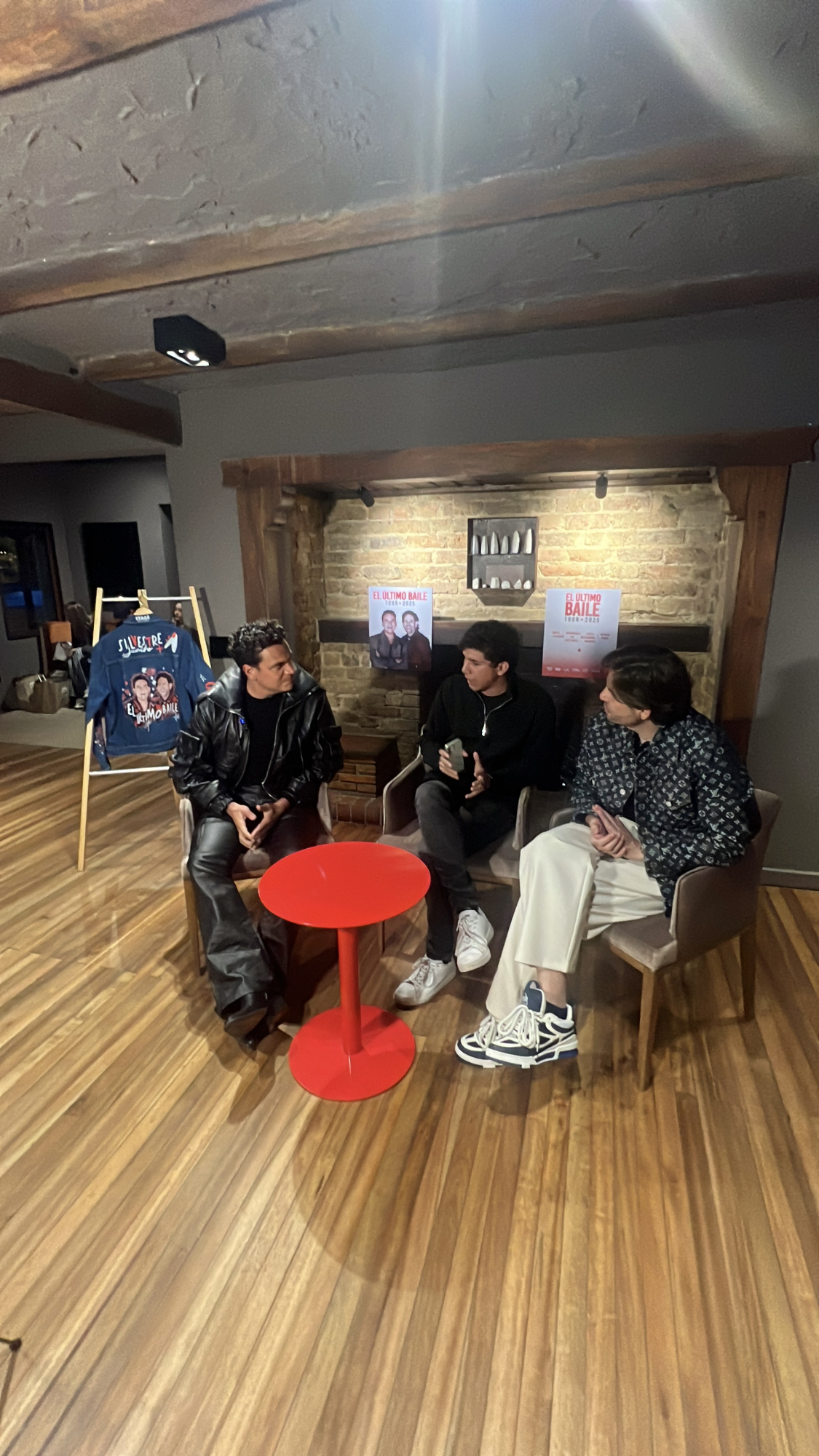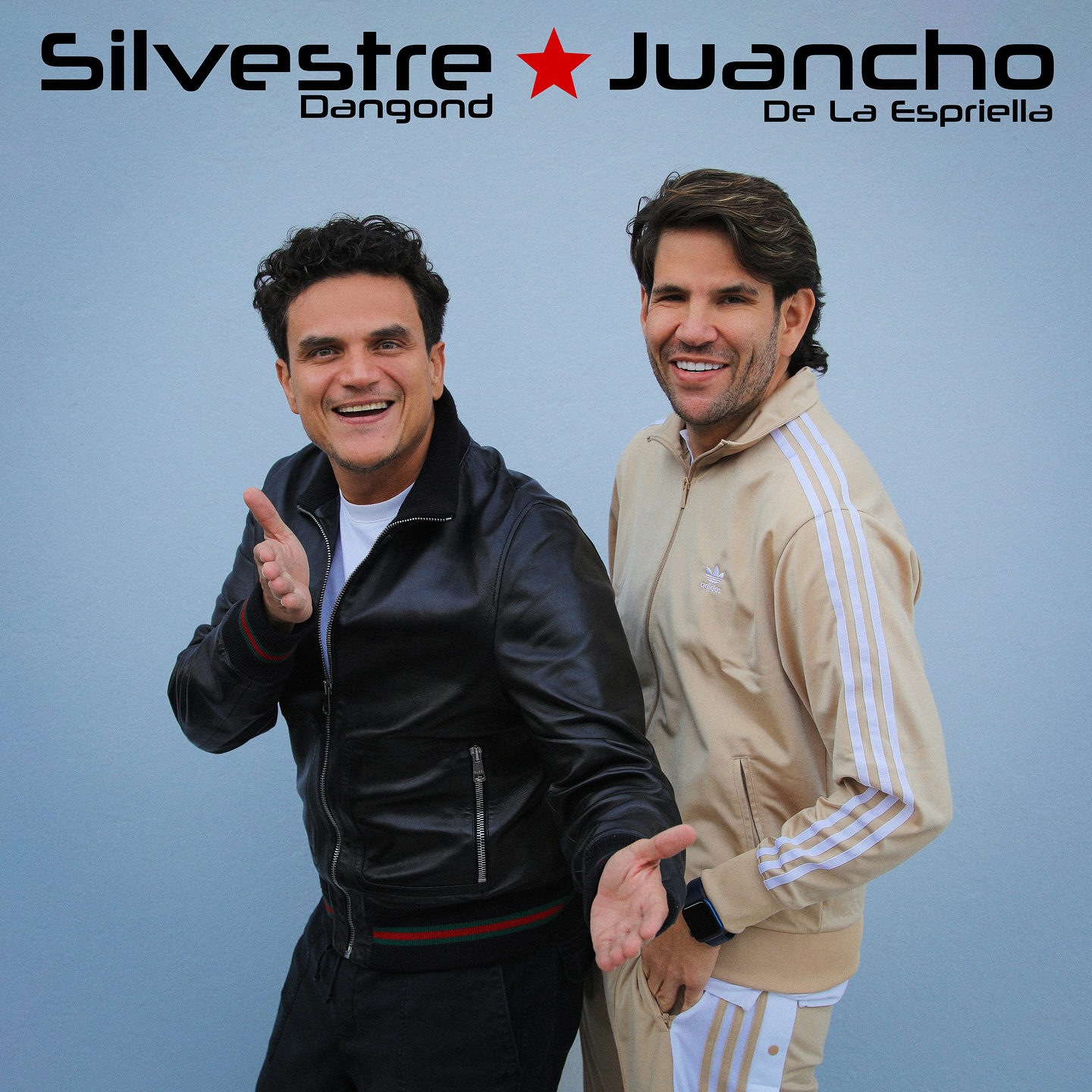'This album will create vallenato classics; music that will transcend time': Silvestre Dangond

A few days ago, Silvestre Dangond and Juan Mario (Juancho) de la Espriella returned to singing like they did in 2008. Back then, a song composed by the urumitero resonated at festivals, parties, kazetas, and wherever Silvestre & Juancho went. It was a response to their critics and a clear statement to their audience: they want to finish them off, but they haven't been able to.
Envy is killing them.
I'm driving them crazy
They say they hardly sleep.
I do what God commands
“Thinking about Juancho and Silvestre.”
Almost twenty years later, those same verses are the closing of one of vallenato's most anticipated reunions, that of Silvestre & Juancho, who released 'El último baile' on May 12th, Dangond's birthday.
The production, which features 13 songs, returns to the origins of 'The New Wave', when the Silvestrists, the so-called "red tide", shook the squares, parks, kiosks and every stage where the duo Dangond - De la Espriella were together.

Silvestre Dangond and Juancho de la Espriella in an interview with EL TIEMPO. Photo: EL TIEMPO
In this production, so titled because both artists consider this to be their last encounter, the singer and accordionist return to traditional, criollo vallenato, with musical arrangements typical of 'The New Wave,' the era in which artists such as Dangond, Kaleth Morales, Peter Manjarrés, and Luifer Cuello popularized vallenato in Colombia and around the world.
In an interview with EL TIEMPO, Dangond and De la Espriella reveal that this was the time to return, following their split in 2012. The pandemic halted the album, and that, although the public demanded it, they wanted to do it more for their "musical pleasure" than to please the audience. Both artists claim to be more mature and capable of creating an album that will become a classic of the vallenato genre in a few years.
With this release, the artists are preparing for an ambitious national tour that begins on August 30th at El Campín Stadium in Bogotá, but will also visit cities such as Barranquilla, Medellín, Cartagena, Cali, Bucaramanga, Cúcuta, Ibagué, Manizales, and Santa Marta. "We have to go all out," says Dangond.

Dangond and de la Espriella produced seven albums together, from 2003 to 2012. Photo: Social media @jmdelaespriella
Silvestre Dangond: I knew this was going to happen at some point in my life. I could feel it. I talked to Juancho about it at some point when we had a reunion in 2017. We started talking about it, and I told him, “We have to record again.” But well… until I decided to announce it, and then the pandemic hit.
Remember, I announced it, but the pandemic hit, and we couldn't make the album. But that remained, latent. I'm very emotional, and when I said it at Parque de la Leyenda, I felt in my heart that this was the next step I had to take. Plus, fans were asking me, "So what? When are you going to record with Juancho?" You told us, and we were excited. They were complaining.
When I said it at the launch of Ta' malo, it was because I felt it in my heart. Juancho called me the next day, excited. From that first moment, we were connected. I think returning as Silvestre and Juancho wasn't just for the people, but also to indulge ourselves musically.

Silvestre Dangond has three songs of his own on the album. Photo: Daniela García. EL TIEMPO
Juancho de la Espriella: The main thing was that we connected immediately, on day one. We started working on this album two years ago. The arrangements were magical. Despite being in different places, we made video calls, picked songs. It's not like we set out to do it A, B, or C, it just happened that way.
Silvestre said something on the first day that I really liked: "Look, I'm not starting this album from La Colegiala, I'm starting from No Me Compares Con Nadie." We were already more mature, with greater musical maturity. And that's been about 14 or 15 years.
Silvestre Dangond: I can't answer that. Because I'm a firm believer that the universe teaches you that we complement each other in many ways. There has to be sun, there has to be moon, water, earth, etc. That's how couples are too. And just because we've separated doesn't mean the magic isn't there. I think the magic is still intact. When we started making arrangements and choosing songs, we realized our tastes were still very similar.
EL TIEMPO: This was never a divorce, it was an eternal love… Silvestre Dangond: Yes, absolutely.

Juancho de la Espriella plays the accordion to accompany a traditional album. Photo: Danuiela García. EL TIEMPO
Silvestre Dangond: Everyone has their own opinions, but I feel like he left nothing undone. Musically, least of all. He did it all: he was an accordionist, composer, singer, Vallenato King…
And on a family level, I wish you had the opportunity to talk to his family so they could tell you everything he did for others. He was ahead of his time. He always lived ahead of his time. It's said that people who are ahead of their time tend to live a little less.
EL TIEMPO: Let's talk about family, Silvestre. In this version of El dolor de cabeza, you don't say "my two little boys," but rather "my three little boys." And Monaco has been fundamental to this album. What was it like working with him? Silvestre Dangond: Even though Monaco plays reggaeton, he understands vallenato perfectly. He understands the culture, the arrangements... he's very sensitive to music. It's not that I take refuge in him, because sometimes I don't have the time, but when I have the opportunity to ask him his point of view, he makes me think and analyze, because he lives the music naturally.
EL TIEMPO: This album has the potential to make many of its songs classic. Which songs do you think will be the classics on this new album? Silvestre Dangond: The vulture, from the start.
Juancho de la Espriella: Just yesterday, Silvestre's team sent me the YouTube views. El buitre is already in second place. It's funny, because songs like Volvamos a ser novios (Let's Be Boyfriends Again) and Caminando libre (Walking Free) are beautiful, but El buitre is a Creole, folkloric song, and it's already in place.
Silvestre Dangond: I think this album is going to leave something beautiful. What I can say is that with this album, you also feel that there's an audience hungry for this music. That doesn't mean we're saviors, because we're not saviors of anything at all. On the contrary, I'm in favor of everything the new generations do. When they do it from the heart, when they do it genuinely. But rest assured that yes, as you say, I know this album is going to leave classics and music that will transcend time.
EL TIEMPO: Today they announced the El último baile tour. The first concert will be on August 30th at El Campín Stadium. What can fans expect? Silvestre Dangond: I'm returning to El Campín after a year. I was there on May 18th of last year. The title says it all. It's not just The Last Dance on an album; if this is the last time the public is going to see us, we have to go all out.
EL TIEMPO: And any message for the Silvestristas who are already dressed in red and ready to enjoy this album? Silvestre Dangond: The invitation is to the Silvestrista Festival in Valledupar, and we'll see each other here in Bogotá on August 30th at El Campín. We have an important challenge: the only stadium we have left to play in Colombia is the Metropolitano in Barranquilla. We're going for it on September 20th.
Environmental and Health Journalist (and vallenato)
eltiempo




